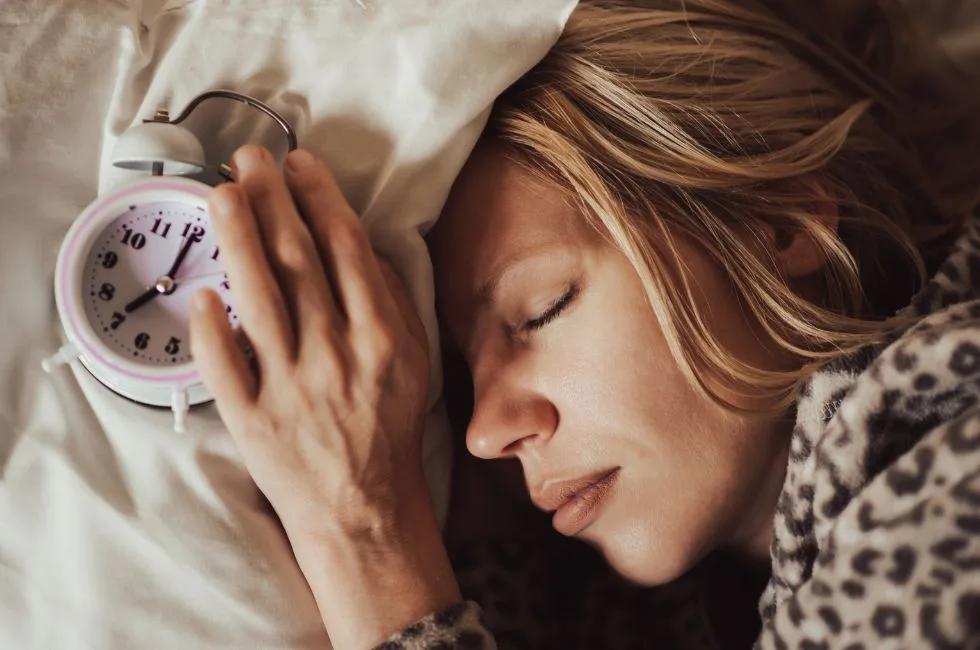Have you ever wondered why you feel energetic at certain times of the day and sleepy at others? The answer lies within your body’s natural clock, known as the circadian rhythm. Circadian rhythms are 24-hour cycles that are part of the body’s internal clock, running in the background to carry out essential functions and processes. One of the most important and well-known circadian rhythms is the sleep-wake cycle.
Understanding and tuning into our circadian rhythms can be particularly beneficial. It’s not just about getting a good night’s sleep. These rhythms impact various aspects of our health, from hormone levels and mood to metabolism and heart health. By unlocking the secrets of these rhythms, we can make lifestyle choices that harmonize with our body’s natural tendencies, promoting overall health and well-being.
Understanding Circadian Rhythms

What Are Circadian Rhythms?
Circadian rhythms are internal processes that regulate the sleep-wake cycle and repeat roughly every 24 hours. They are influenced by external cues like light and temperature. Your body’s “master clock,” located in the brain, controls these rhythms, coordinating with cells throughout the body. This internal timekeeper is crucial for maintaining a healthy balance in your daily life.
How Do They Affect Our Lives?
These rhythms influence more than just sleep. They impact your eating habits, digestion, body temperature, and even your mood and alertness levels. For instance, you might notice you’re more alert at certain times of the day and feel a dip in energy at others. These fluctuations are part of your circadian rhythm at work.
Circadian Rhythms and Women’s Health

Unique Impacts on Women’s Health
Women’s bodies are complex systems influenced by a variety of factors, including hormonal changes. Circadian rhythms play a significant role in regulating these hormones, affecting menstrual cycles, fertility, and even the experience of menopause. For example, disruptions in circadian rhythms can lead to irregular menstrual cycles or worsened premenstrual symptoms.
Hormonal Balance and Sleep Patterns
Hormones like estrogen and progesterone, which are crucial for reproductive health, are influenced by circadian rhythms. These hormones not only affect your menstrual cycle but also impact your sleep patterns. You might find that your sleep quality changes throughout your menstrual cycle, which can be tied back to the fluctuations in these hormone levels.
Optimizing Your Circadian Rhythm

Aligning with Your Natural Rhythm
To maintain a healthy circadian rhythm, it’s essential to establish a regular sleep schedule. Aim to go to bed and wake up at the same time every day, even on weekends. This consistency reinforces your body’s sleep-wake cycle and can improve sleep quality over time.
Importance of Light Exposure
Light plays a pivotal role in regulating circadian rhythms. Exposure to natural light, especially in the morning, can help synchronize your body’s internal clock. Try to get outside in natural sunlight for at least 30 minutes each day. In contrast, reducing exposure to blue light from screens before bedtime can help signal to your body that it’s time to wind down.
Meal Times and Diet
When you eat can also affect your circadian rhythm. Eating at regular intervals can help regulate your body clock. Avoid heavy meals and caffeinated beverages close to bedtime as they can disrupt your sleep.
Challenges and Solutions

Dealing with Shift Work
Many women work in jobs that require shift work, which can disrupt circadian rhythms. If you’re a shift worker, try to maintain a regular sleep schedule as much as possible. Use blackout curtains and sleep masks to create a dark environment for sleep during the day. Also, consider light therapy to regulate your body clock.
Balancing Parenting and Sleep
For mothers, especially new mothers, maintaining a consistent sleep schedule can be challenging. It’s important to seek help when needed and try to rest when your child is sleeping. Creating a bedtime routine for your child can also help establish a more predictable schedule for yourself.
Managing Stress and Anxiety
Stress and anxiety can significantly impact sleep and circadian rhythms. Practices like mindfulness, meditation, and regular exercise can help manage stress levels. Also, establishing a calming bedtime routine can aid in transitioning to sleep more easily.
Frequently Asked Questions (FAQs)
Disruption in circadian rhythms can lead to various issues like sleep disorders, mood changes, and even metabolic problems. It’s important to try and maintain a regular schedule and seek professional advice if disruptions become a persistent issue.
Yes, traveling across time zones can disrupt your circadian rhythm, leading to jet lag. To minimize its effects, try to gradually adjust your sleep schedule before your trip and get plenty of sunlight upon reaching your destination to reset your internal clock.
Circadian rhythms can change as you age. For instance, older adults may find they become sleepier earlier in the evening and wake up earlier in the morning. Adjusting your routine to these changes can help maintain a healthy circadian rhythm.
Yes, your diet can impact your circadian rhythms. Eating a balanced diet at regular intervals throughout the day can help keep your internal clock on track. Be mindful of caffeine and sugar intake, especially later in the day, as they can disrupt sleep.




